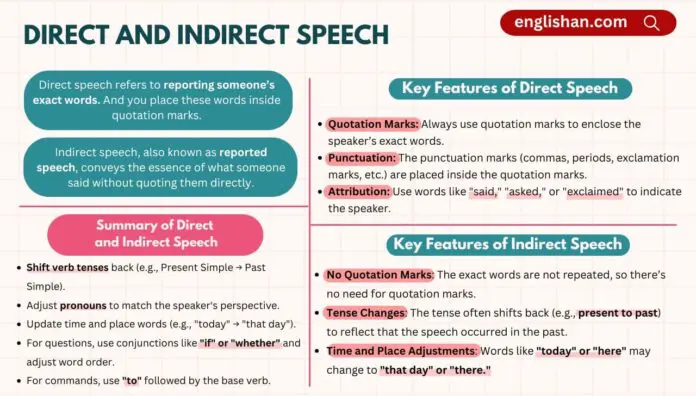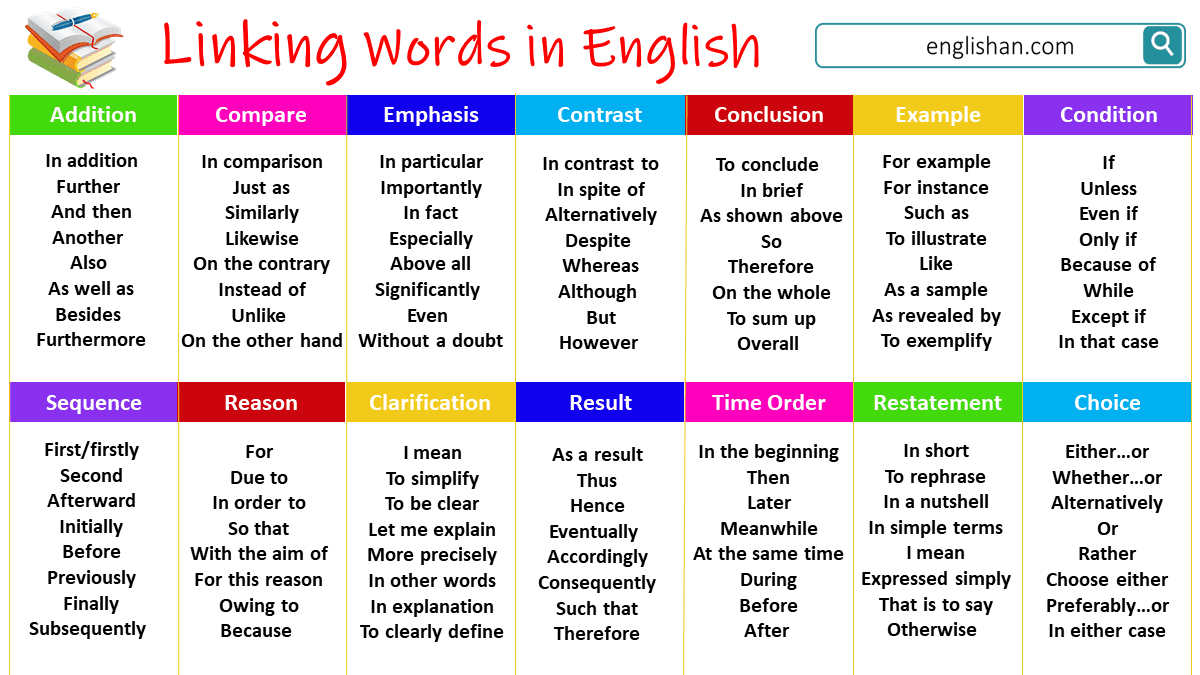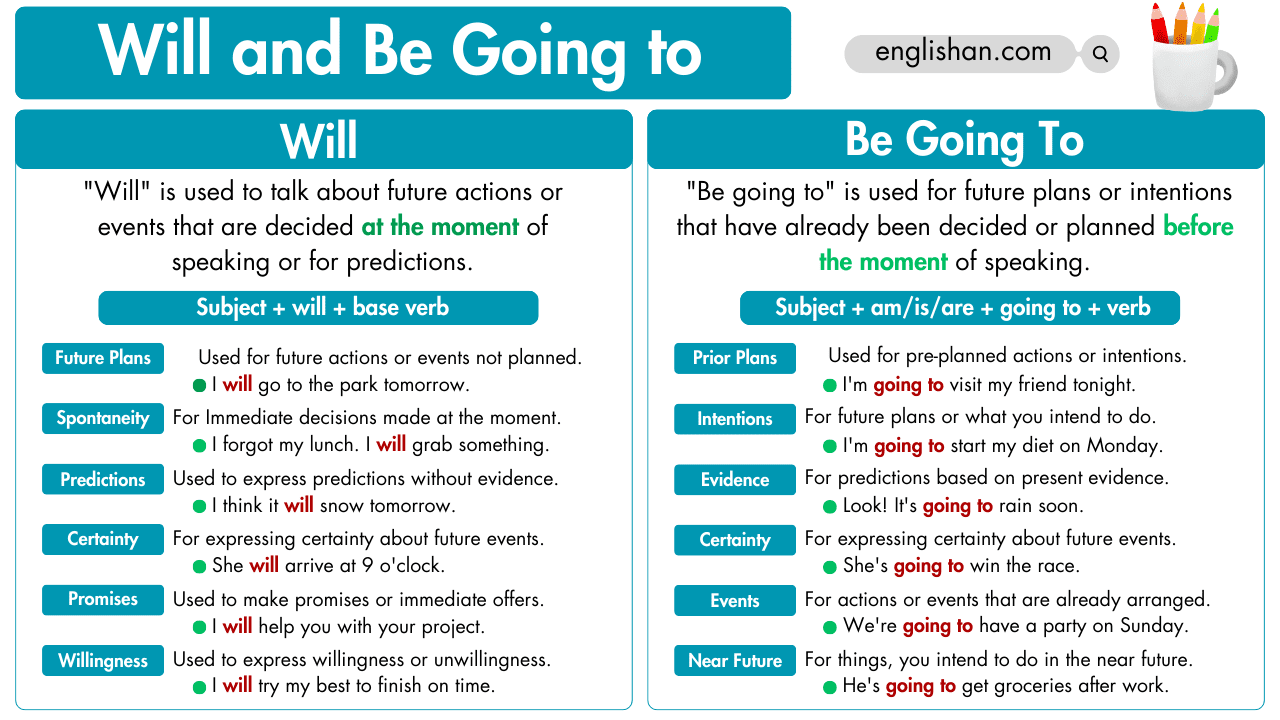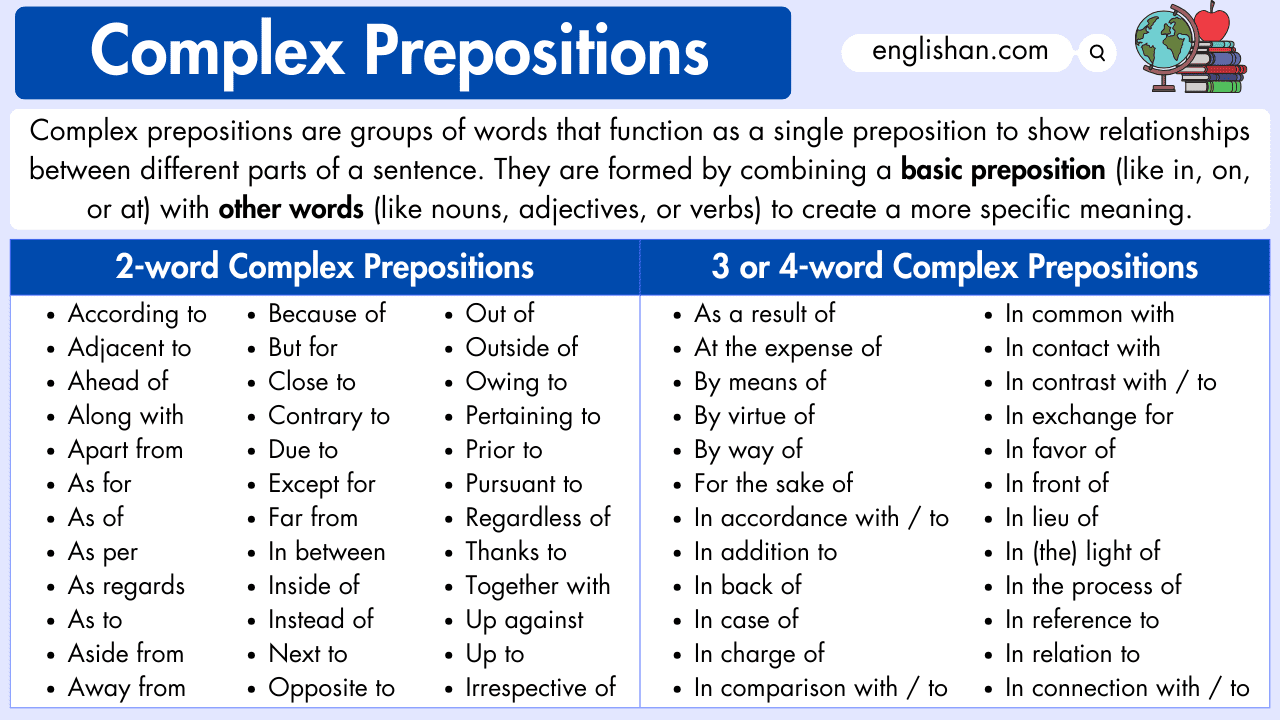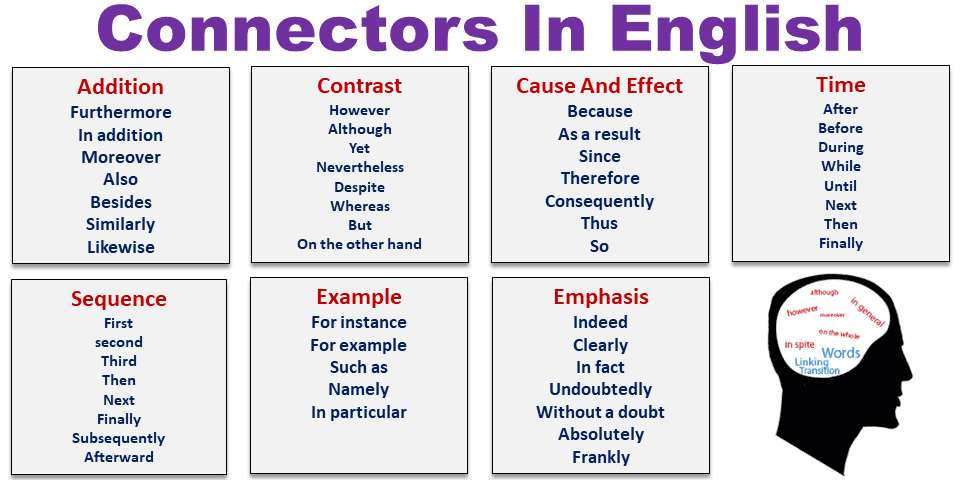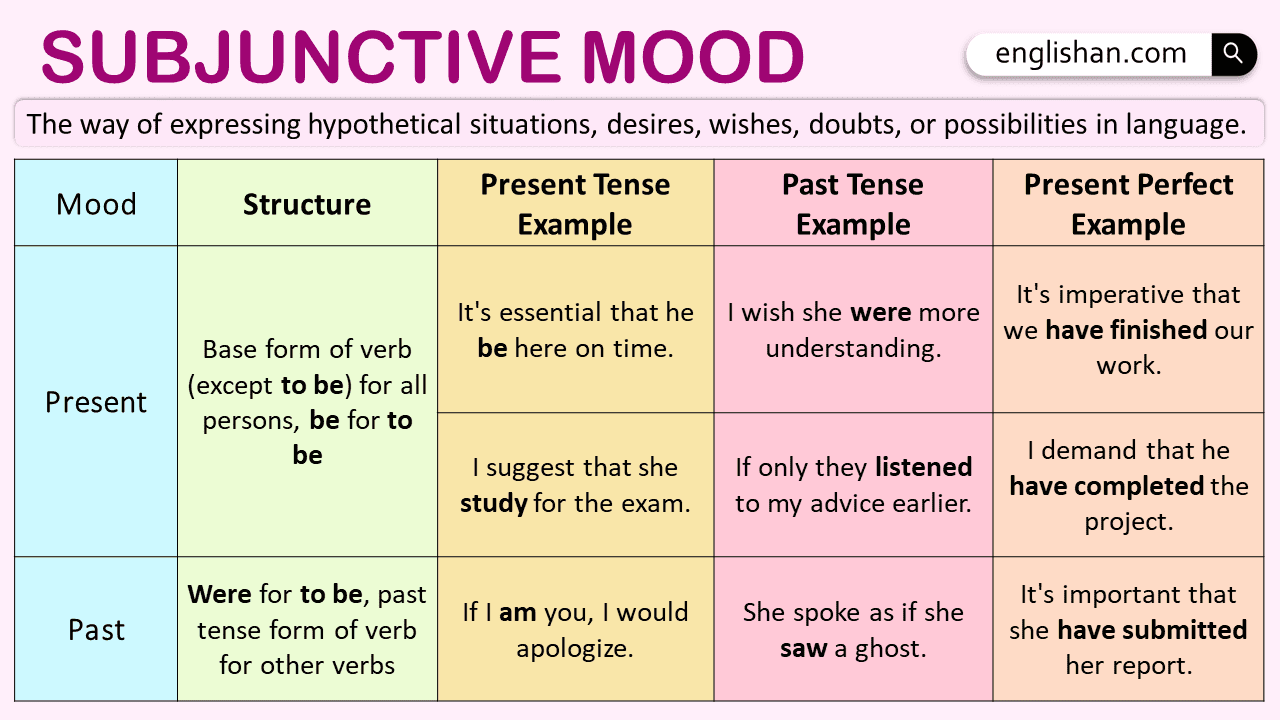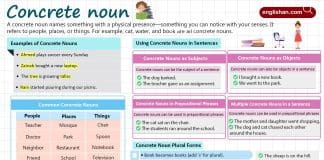Contents
Learning English grammar can feel like navigating a maze, but understanding concepts like direct and indirect speech can make your journey smoother. These two forms of reporting speech are fundamental, and learning them will improve your communication and writing skills. In this guide, we’ll explore what direct and indirect speech in English Grammar are, how they work, and their differences, all explained in a clear and friendly way.
What is Direct Speech?
Direct speech refers to reporting someone’s exact words. You place these words inside quotation marks to show that they are being repeated word-for-word. So, it’s like directly quoting what someone said.
Key Features of Direct Speech:
Following are a few key features of direct speech:
- Quotation Marks: First of all, always use quotation marks to enclose the speaker’s exact words.
- Punctuation: Secondly, the punctuation marks (commas, periods, exclamation marks, etc.) are placed inside the quotation marks.
- Attribution: Thirdly, use words like “said,” “asked,” or “exclaimed” to indicate the speaker.
Examples of Direct Speech:
- John said, “I am going to the market.”
- Mary asked, “Did you finish your homework?”
- He exclaimed, “What a beautiful day it is!”
What is Indirect Speech?
Indirect speech, also known as reported speech, conveys the essence of what someone said without quoting them directly. Furthermore, in this form, quotation marks are not used, and the sentence structure often changes.
Key Features of Indirect Speech:
Following are a few key features of indirect speech:
- No Quotation Marks: First of all, keep in mind that in indirect speech, the exact words are not repeated, so there’s no need for quotation marks.
- Tense Changes: Secondly, the tense often shifts back (e.g., present to past) to reflect that the speech occurred in the past.
- Pronoun Changes: Thirdly, pronouns and possessives change to match the perspective of the speaker.
- Time and Place Adjustments: Lastly, words like “today” or “here” may change to “that day” or “there.”
Examples of Indirect Speech:
- John said that he was going to the market.
- Mary asked if I had finished my homework.
- He exclaimed that it was a beautiful day.

Differences Between Direct and Indirect Speech
Direct and indirect speech serve different purposes in communication. While direct speech allows us to quote someone exactly as they spoke, indirect speech helps us summarize or paraphrase their words. Moreover, understanding these differences is key to using them effectively in writing and speaking. So now, let’s break down the specific distinctions to make this clearer:
| Aspect | Direct Speech | Indirect Speech |
| Quotation Marks | Used | Not Used |
| Tense | Remains unchanged | Often changes |
| Pronouns | Same as the speaker’s original words | Adjusted to fit the reporting context |
| Time References | Exact words | Adjusted to fit the timing |
Rules for Changing Direct Speech to Indirect Speech
In order to convert direct speech to indirect speech in English Grammar, follow these essential rules:
1. Change the Tense
When converting direct speech into indirect speech, the verb tense often moves one step back in time. For instance:
Present Simple → Past Simple
- Direct: She says, “I love chocolate.”
- Indirect: She said that she loved chocolate.
Present Continuous → Past Continuous
- Direct: He said, “I am reading a book.”
- Indirect: He said that he was reading a book.
Present Perfect → Past Perfect
- Direct: They said, “We have completed the project.”
- Indirect: They said that they had completed the project.
2. Adjust Pronouns
Pronouns in the original sentence may need to change to reflect the speaker’s perspective.
- Direct: “I am happy,” said Sarah.
- Indirect: Sarah said that she was happy.
3. Modify Time and Place Words
Words indicating time and place in direct speech often need to be adjusted:
- “Today” becomes “that day.”
- “Tomorrow” becomes “the next day.”
- “Here” becomes “there.”
Examples:
- Direct: He said, “I will meet you here tomorrow.”
- Indirect: He said that he would meet me there the next day.
4. Change the Sentence Structure
Questions and commands require special attention:
Questions: Change the word order and add conjunctions like “if” or “whether.”
- Direct: She asked, “Are you coming?”
- Indirect: She asked if I was coming.
Commands: Use “to” followed by the base verb.
- Direct: He said, “Open the window.”
- Indirect: He told me to open the window.
Common Mistakes to Avoid
When using direct or indirect speech in English Grammar, these are some common errors to watch out for:
1 – Forgetting to Change Pronouns:
Remember to adjust pronouns to suit the context.
For Example:
Direct: “I am here.” → Indirect: He said that he was there.
2 – Skipping Tense Adjustments:
Ensure you backshift the tense unless exceptions apply, such as universal truths.
For Example:
Direct: “The sun rises in the east.” → Indirect: She said that the sun rises in the east.
3 – Ignoring Time and Place Changes:
Words like “now,” “here,” and “today” need to align with the timing and context of the report.
Example:
Direct: “I’ll do it tomorrow.” → Indirect: He said that he would do it the next day.
Most Frequently Asked Questions
Here are answers to common questions about direct and indirect speech:
Direct speech uses the speaker’s exact words enclosed in quotation marks, while indirect speech conveys the meaning without quoting directly and often involves tense and pronoun changes.
No, the tense remains unchanged if the reporting verb is in the present or future tense or if the original statement expresses a universal truth.
Practice by taking simple sentences in direct speech and applying the rules for tense, pronoun, and time/place changes. Moreover, you can use this guide as a reference.
Quotation marks are not used in indirect speech because the exact words are not being quoted; instead, the meaning is paraphrased.
Yes, indirect speech is often used in formal writing, such as reports and essays, to summarize what someone said.
Conclusion
To sum up, learning direct and indirect speech is an essential skill in mastering English grammar. While direct speech captures exact words, indirect speech conveys their meaning. Moreover, by practicing the rules and examples provided, you’ll soon feel confident in using both forms fluently. Keep practicing, and don’t hesitate to revisit these concepts as needed. Moreover, if you want to be an expert in English composition, Vocabulary, and grammar, don’t forget to check out our blog today.
You May Also Like
